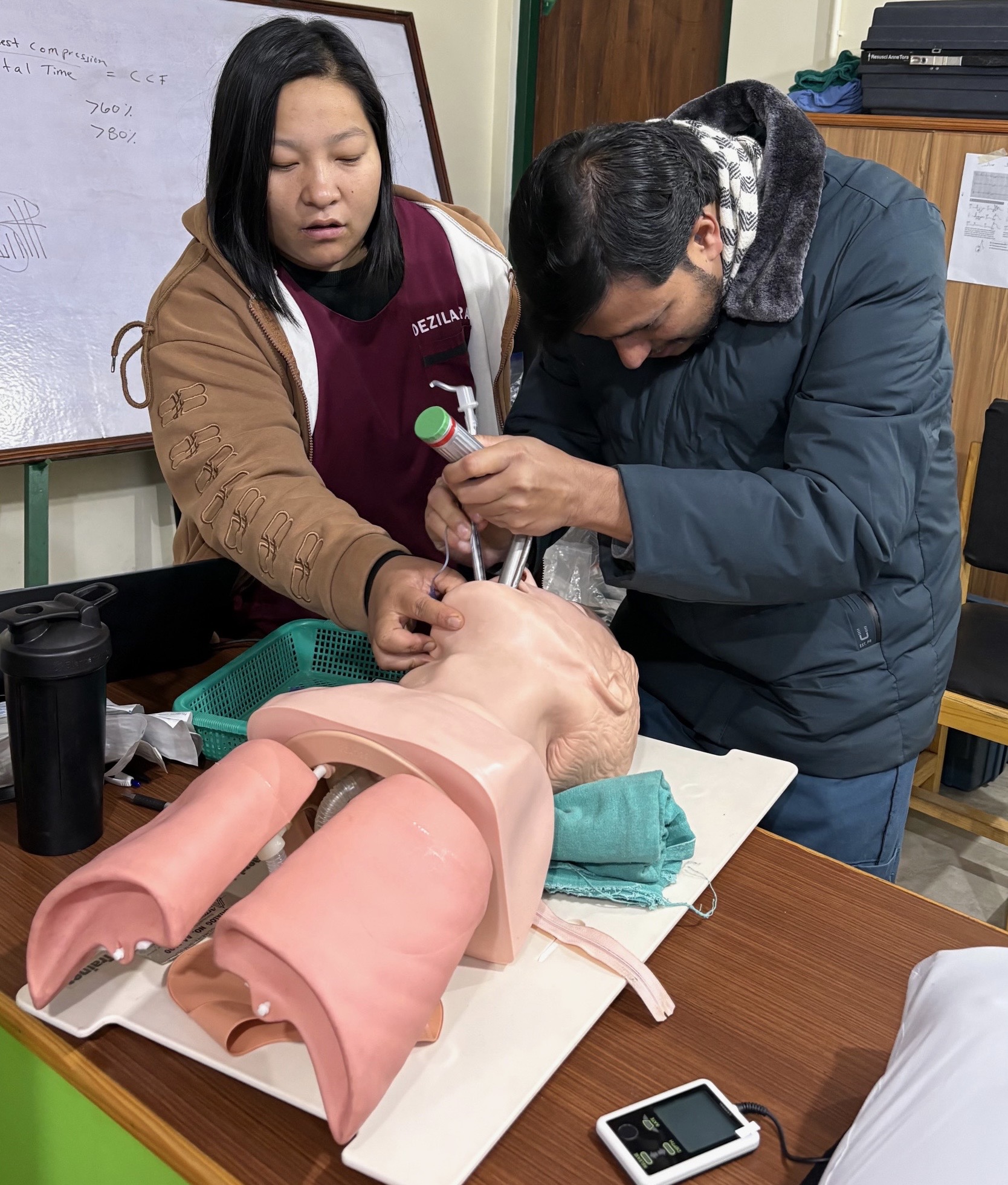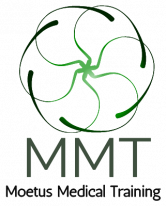Advanced Cardiovascular Life Support (ACLS)

Course Description and Goal
The Advanced Cardiovascular Life Support (ACLS) Provider Course is designed for healthcare providers who either direct or participate in the management of cardiopulmonary arrest or other cardiovascular emergencies. Through didactic instruction and active participation in simulated cases, students will enhance their skills in the recognition and intervention of cardiopulmonary
arrest, immediate post-cardiac arrest, acute dysrhythmia, stroke, and acute coronary syndromes (ACS).
The goal of this course is to improve outcomes for adult patients of cardiopulmonary arrest and other cardiovascular emergencies through early recognition and interventions by high-performance teams.
Course Objectives
● Define systems of care
● Apply the Basic Life Support (BLS) Assessment, Primary Assessment, and Secondary Assessment sequences for systematic evaluation of adult patients
● Discuss how using rapid response teams (RRTs) or medical emergency teams (METs) may improve patient outcomes
● Discuss early recognition and management of ACS, including appropriate disposition
● Discuss early recognition and management of stroke, including appropriate disposition
● Recognize bradycardia and tachycardia that may result in cardiac arrest or complicate resuscitation outcome
● Perform early management of bradycardia and tachycardia that may result in cardiac arrest or complicate resuscitation outcome
● Model effective communication as a member or leader of a high-performance team
● Recognize the impact of team dynamics on overall team performance
● Recognize respiratory arrest
● Perform early management of respiratory arrest
● Recognize cardiac arrest
● Perform prompt, high-quality BLS, which includes prioritizing early chest compressions and integrating early automated external defibrillator (AED) use
● Perform early management of cardiac arrest until termination of resuscitation or transfer of care, including immediate post-cardiac arrest care
● Evaluate resuscitative efforts during cardiac arrest by continually assessing cardiopulmonary resuscitation (CPR) quality, monitoring the patient’s physiologic response, and delivering real-time feedback to the team
Topics
● Systematic approach (assessment)
● High-quality BLS
● Airway management
● Rhythm recognition
● Defibrillation
● Intravenous (IV) and intraosseous (IO) access
● Use of medications
● Cardioversion
● Transcutaneous pacing
● High-performance teams
Course by

Jeff Tanguay is the CEO, founder, and lead instructor of Moetus Medical Training. With two professional doctoral degrees (pharmacology and anesthesia), he brings a unique blend of clinical expertise and educational leadership to the team. His extensive experience of 20+ years across a multitude of h...
Course Description and Goal
The Advanced Cardiovascular Life Support (ACLS) Provider Course is designed for healthcare providers who either direct or participate in the management of cardiopulmonary arrest or other cardiovascular emergencies. Through didactic instruction and active participation in simulated cases, students will enhance their skills in the recognition and intervention of cardiopulmonary
arrest, immediate post-cardiac arrest, acute dysrhythmia, stroke, and acute coronary syndromes (ACS).
The goal of this course is to improve outcomes for adult patients of cardiopulmonary arrest and other cardiovascular emergencies through early recognition and interventions by high-performance teams.
Course Objectives
● Define systems of care
● Apply the Basic Life Support (BLS) Assessment, Primary Assessment, and Secondary Assessment sequences for systematic evaluation of adult patients
● Discuss how using rapid response teams (RRTs) or medical emergency teams (METs) may improve patient outcomes
● Discuss early recognition and management of ACS, including appropriate disposition
● Discuss early recognition and management of stroke, including appropriate disposition
● Recognize bradycardia and tachycardia that may result in cardiac arrest or complicate resuscitation outcome
● Perform early management of bradycardia and tachycardia that may result in cardiac arrest or complicate resuscitation outcome
● Model effective communication as a member or leader of a high-performance team
● Recognize the impact of team dynamics on overall team performance
● Recognize respiratory arrest
● Perform early management of respiratory arrest
● Recognize cardiac arrest
● Perform prompt, high-quality BLS, which includes prioritizing early chest compressions and integrating early automated external defibrillator (AED) use
● Perform early management of cardiac arrest until termination of resuscitation or transfer of care, including immediate post-cardiac arrest care
● Evaluate resuscitative efforts during cardiac arrest by continually assessing cardiopulmonary resuscitation (CPR) quality, monitoring the patient’s physiologic response, and delivering real-time feedback to the team
Topics
● Systematic approach (assessment)
● High-quality BLS
● Airway management
● Rhythm recognition
● Defibrillation
● Intravenous (IV) and intraosseous (IO) access
● Use of medications
● Cardioversion
● Transcutaneous pacing
● High-performance teams
Course by

Jeff Tanguay is the CEO, founder, and lead instructor of Moetus Medical Training. With two professional doctoral degrees (pharmacology and anesthesia), he brings a unique blend of clinical expertise and educational leadership to the team. His extensive experience of 20+ years across a multitude of h...
